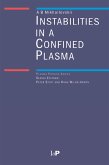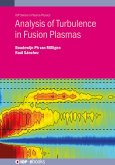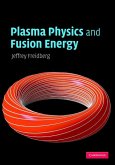This book describes the ideal magnetohydrodynamic (MHD) theory for magnetically confined fusion plasmas. Advanced topics are presented in an attempt to fill the gap between up-to-date research developments and plasma physics textbooks. Each topic is self-contained and trackable, with the mathematical treatments detailed and underlying physics explained. Both analytical theories and numerical schemes are also provided, and the current research developments in this field as well as the future prospects are discussed.
Nowadays, it is believed that if the ideal MHD theory predicts major instabilities, none of the magnetic confinements of fusion plasmas can survive. The conventional ideal MHD framework is reviewed in this text together with the newly developed multi-parallel-fluid MHD theory; the MHD equilibrium theory and code are described with the non-letter- "X" separatrix feature pointed out. The continuum modes, quasi-modes, phase mixing, and Alfvén resonance heating are analysed and analytical theories for MHD stability in tokamak configurations are systematically presented, such as the interchange, peeling, ballooning, toroidal Alfvén modes, and kink type of modes. The global stability computations are also addressed, including resistive wall modes, error-field amplifications and Alfvén modes.
Nowadays, it is believed that if the ideal MHD theory predicts major instabilities, none of the magnetic confinements of fusion plasmas can survive. The conventional ideal MHD framework is reviewed in this text together with the newly developed multi-parallel-fluid MHD theory; the MHD equilibrium theory and code are described with the non-letter- "X" separatrix feature pointed out. The continuum modes, quasi-modes, phase mixing, and Alfvén resonance heating are analysed and analytical theories for MHD stability in tokamak configurations are systematically presented, such as the interchange, peeling, ballooning, toroidal Alfvén modes, and kink type of modes. The global stability computations are also addressed, including resistive wall modes, error-field amplifications and Alfvén modes.
Dieser Download kann aus rechtlichen Gründen nur mit Rechnungsadresse in A, D ausgeliefert werden.









